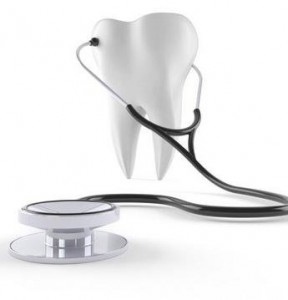
Chewing your food. It is probably something you don’t think about very often. Most people take it for granted that they can eat anything they want. If you take a look around America you might think that people must be chewing a lot. However, it seems that the exact opposite is true. The entire process of nourishment begins with the art of chewing. Smooth digestion and complete assimilation of the nutrients in your food are only possible if food is chewed well. People who don’t chew well end up not being satisfied with a healthy amount of food and therefore overeat.
Many of us are under a big time crunch on a daily basis and sitting down to enjoy a relaxing meal is hard to do but it should be a goal. Why? Because the stress of a long, trying day can be calmed by simply chewing your food slowly and completely. Conversely, if food is chewed too quickly, the entire body can be stressed more by having to work harder to break down meats, vegetables and fruits. For carbohydrates, digestion begins in the mouth. Thorough chewing increases the amount of saliva that turns grains and other complex carbohydrates into satisfying sugars and makes oils, proteins and minerals available for maximum absorption. Chewing food properly also lessens the incidences of acid reflux, gas and other disorders.
Since nourishment begins with chewing, teeth are extremely important! That seems obvious but many people must not realize how important their teeth really are. Many people stop thinking at - do I need a Root Canal treatment. And visit to the dentist to maintain dental health are not regular for many people and so they lose teeth. The demographics for people missing one or more teeth are staggering! More than 35 million Americans don’t have any teeth and 178 million of us are missing at least one tooth. Without proper nourishment, the body becomes more susceptible to disease. Along with nutritional deficiencies, other consequences of missing teeth are obesity, diabetes, coronary artery disease, and some forms of cancer. This doesn’t even take into account the psychological consequences of missing one or more teeth.
Well, what happens if you lose or are missing one or more teeth? Your dentist can give you a variety of options to replace missing teeth but don’t be fooled into thinking that all restorations are equal. There are good, better, and best options for maintaining your overall dental health once you have lost teeth. The best option in many cases is to choose dental implants. Science has proven that they are a long-term solution for missing teeth and that they can preserve the bone that supports the teeth. Even so, some implant restorations are better than others for people with more than one missing tooth. For a person with a denture from a denture clinic, the bite force available for chewing is between 10-30% of chewing capacity with natural teeth. If you add 2 dental implants to support the dentures, it rises to about 60%. With 4-6 permanent dental implants, you can get about 90% of your original capacity and eat just about anything you want.
If the road to good health begins with the art of chewing (and chewing properly), then aren’t your teeth one of the most important parts of your body? Maybe it is time to get back to your dentist and talk about your health plan. Buon appetito!

